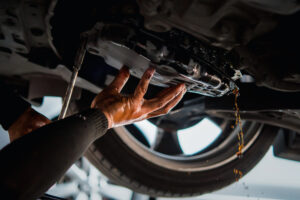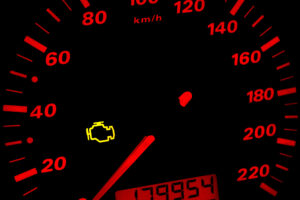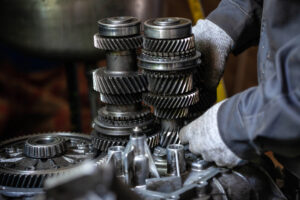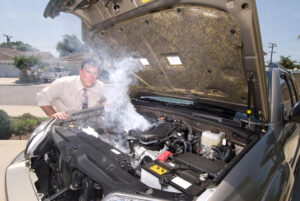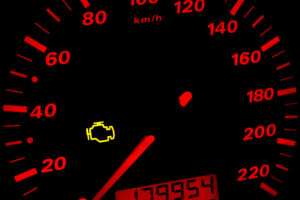Each time you accelerate, back out of a parking spot, or shift gears, it’s thanks to transmission fluid. That may sound like a stretch, but without adequate fluid, your transmission can’t operate efficiently—and in fact, extensive damage can be done while you drive if fluid is too low or dirty. As part of your car’s routine maintenance schedule, aim to have transmission fluid changed every 30,000-60,000 miles for manual cars or every 60,000-100,000 miles for automatic cars. Keeping up with this service has several important benefits—and skipping it comes with risks.
Key Benefits of Routine Transmission Fluid Replacement
Don’t overlook transmission maintenance like fluid changes—these services come with important benefits for your car’s performance and overall health. When your transmission fluid is well-maintained, you’ll enjoy better gas mileage, easy gear shifts, reliable performance, and fewer costly transmission repairs.
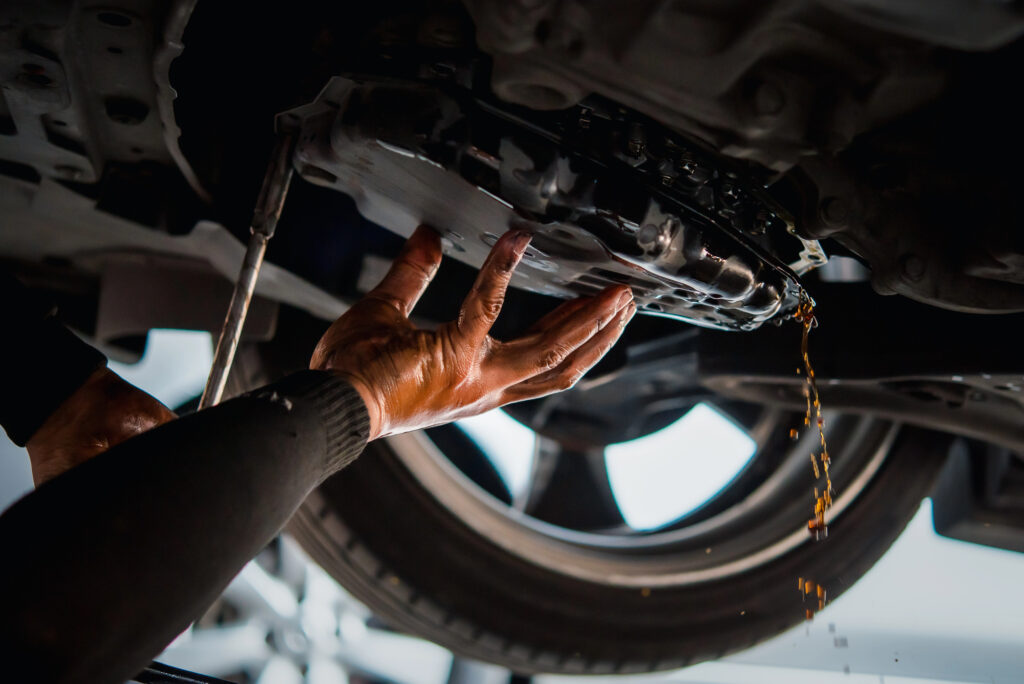
Improved Fuel Economy
Your transmission operates efficiently thanks to fluid flow—and it’s closely connected with the engine. When your transmission is able to easily and smoothly shift gears, it puts less strain on the engine. But without adequate transmission fluid, the engine has to work harder each time you shift gears. This means your engine has to burn through more fuel to get the same result in performance.
Smooth, Easy Gear Shifts
With use, transmission fluid gradually thickens and can turn sludgy from picking up contaminants. This impacts lubrication and hydraulic pressure in the system, making it more difficult to shift gears. Regular transmission fluid changes help prevent over-contamination so that it stays smooth and easy to shift gears—and that means it’s easier for you to accelerate or decelerate.
Prevention of Excess Wear or Damage
One of the most common ways for your car’s transmission to develop excess wear or damage is bad fluid. Not only does low or thickened fluid make it more difficult to shift gears and keep gears fully engaged, but it also means that moving parts aren’t sufficiently lubricated. That lubrication is key to preventing damage caused by friction.
Fewer Transmission Repairs
As with any system in your car, the more you keep up with transmission maintenance like fluid changes, the less likely you are to deal with major related repairs. By avoiding the damage that can result from bad transmission fluid, you keep the system healthier—and that means you likely won’t have to spend as much on repairs. Plus, you’ll help extend the life of your transmission and vehicle overall.
Risks of Skipping or Postponing a Transmission Fluid Change
On the other hand, there are corresponding risks to skipping or postponing transmission maintenance like fluid replacement. In general, it’s better to have maintenance done more frequently than necessary, rather than not often enough. If you’re overdue for fresh transmission fluid, consider the possibility of any of these risks happening.
Avoid Engine Lock-Up
If your transmission is overworked, it can lead to engine lock-up. Though this is a more extreme example of the risks of skipping transmission maintenance, if fluid is allowed to degrade and thicken enough, it can happen. In this case, you risk causing damage not only to the transmission itself, but also to the engine.
Leaking Transmission Fluid
The fluid in your transmission is essential for its operation. If the system starts to leak, the level of fluid may become too low for moving parts to stay lubricated and your transmission to be properly pressurized. When you keep up with routine transmission fluid services, it allows your mechanic an opportunity to thoroughly inspect the system—which can help catch fluid leaks before they cause bigger problems.
Difficulty Around Gear Shifts & Acceleration
One of the most common signs of an issue with your transmission fluid is difficulty shifting gears. If you’re overdue for a fluid replacement service, you may find that it’s more difficult to shift gears or stay in gear, especially relating to reverse. You may also experience slipping gears, where your transmission slips out of the selected gear while you drive, causing sudden hesitation or a loss of power.
An Overheating Transmission
The more friction is generated in your transmission, the higher the chances of overheating. This can be coupled with increased strain on both the transmission and engine when gear shifts can’t happen easily, making it more likely that both systems could run warm. Higher internal temperatures speed up wear and increase the chances of damage, so it’s essential to take steps to avoid overheating.
Trust AAMCO with Your Next Transmission Fluid Service
When it comes to transmission care, there’s no place better to go than your local AAMCO. Our mechanics are transmission experts with years of hands-on experience. No matter what type of service your vehicle needs, we’re here to help—and you’ll drive away confident in the overall health and condition of your car. Schedule your appointment with us today!

